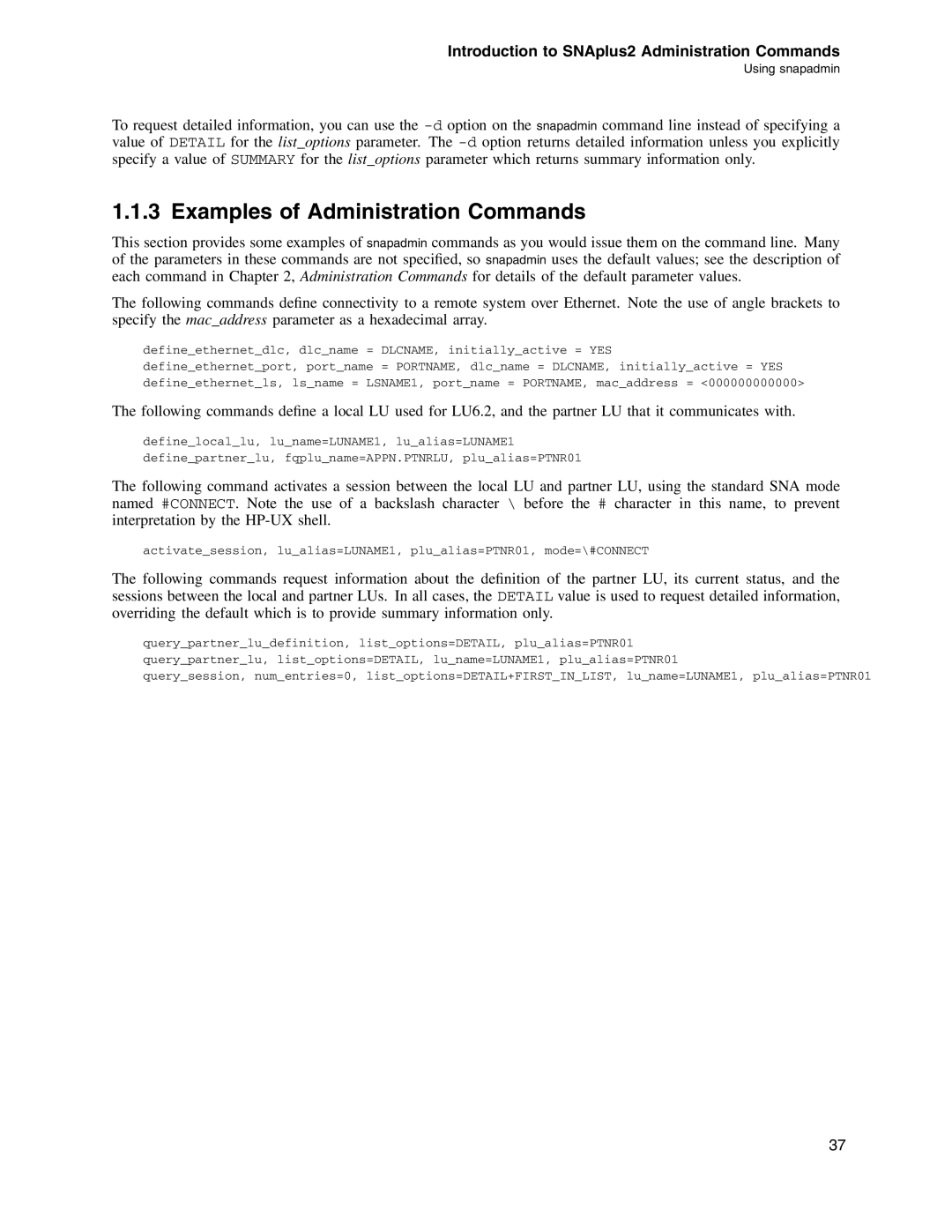Introduction to SNAplus2 Administration Commands
Using snapadmin
To request detailed information, you can use the
1.1.3 Examples of Administration Commands
This section provides some examples of snapadmin commands as you would issue them on the command line. Many of the parameters in these commands are not specified, so snapadmin uses the default values; see the description of each command in Chapter 2, Administration Commands for details of the default parameter values.
The following commands define connectivity to a remote system over Ethernet. Note the use of angle brackets to specify the mac_address parameter as a hexadecimal array.
define_ethernet_dlc, dlc_name = DLCNAME, initially_active = YES
define_ethernet_port, port_name = PORTNAME, dlc_name = DLCNAME, initially_active = YES define_ethernet_ls, ls_name = LSNAME1, port_name = PORTNAME, mac_address = <000000000000>
The following commands define a local LU used for LU6.2, and the partner LU that it communicates with.
define_local_lu, lu_name=LUNAME1, lu_alias=LUNAME1
define_partner_lu, fqplu_name=APPN.PTNRLU, plu_alias=PTNR01
The following command activates a session between the local LU and partner LU, using the standard SNA mode named #CONNECT. Note the use of a backslash character \ before the # character in this name, to prevent interpretation by the
activate_session, lu_alias=LUNAME1, plu_alias=PTNR01, mode=\#CONNECT
The following commands request information about the definition of the partner LU, its current status, and the sessions between the local and partner LUs. In all cases, the DETAIL value is used to request detailed information, overriding the default which is to provide summary information only.
query_partner_lu_definition, list_options=DETAIL, plu_alias=PTNR01
query_partner_lu, list_options=DETAIL, lu_name=LUNAME1, plu_alias=PTNR01
query_session, num_entries=0, list_options=DETAIL+FIRST_IN_LIST, lu_name=LUNAME1, plu_alias=PTNR01
37
